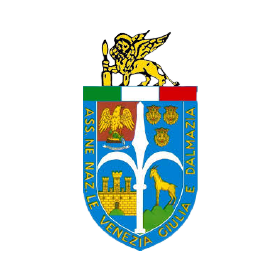After the ludicrous appropriation of the the statue known as the “Lussin Bronze” (thus named due to its having been found off the coast of the island of Lussino), exhibited for months in Florence as the “Croatian Athlete” and now collecting dust in Zagreb, Croatia is, once again, up to its usual game of attempting to make Croatian what has never been even remotely Croatian. This time it is Marco Polo’s turn: it seems he has been given full Croatian citizenship, and a Croatian passport for good measure. The Croatian National Tourist Board recently published 150,000 copies of a brochure and a 15-minute film in which “scientific proof” is given to show that Marco Polo was born on the Dalmatian island of Curzola and thus, his native land must inevitably be Croatia. (The source is an article from the September 5th edition of “La Voce del Popolo”, the Italian-language newspaper based in Fiume.)
This latest, ridiculous, attempt at appropriation of identity is steeped in complete ignorance of historical fact: Marco Polo is universally recognized by hosts of expert scolars as having been born in Venice and besides, even if his family had its origins on Curzola, the island in that period was a territory of Venice, and the local population was of Latin-Venetian culture: there did not exist the remotest sign or mention of Croatia.
This cheap attempt at “Croatianization” demonstates the will – this time, truly scientific – to rewrite history, tailoring it to fit a nation’s needs and preferences, conferring citizenship on famous people so as to gain favor on tourist brochures. There might be a few tourists who, ignorant of the truth, will fall into the trap, but culture and history are something else entirely: they are written in books, not on tourist brochures.
Fabio Rocchi
National ANVGD Secretary




